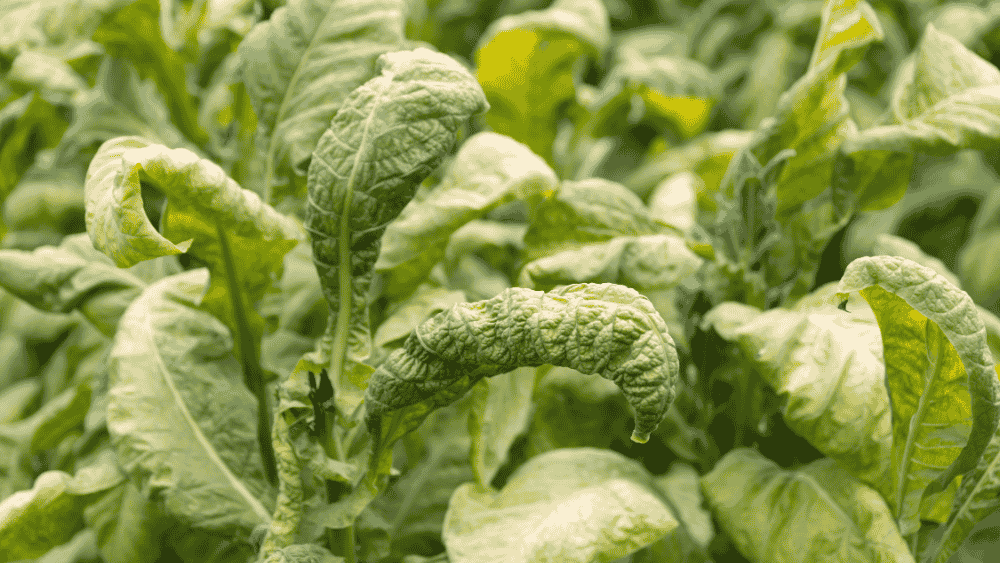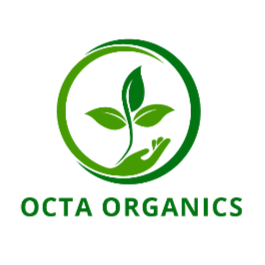
Potato Leaf Curl Virus Treatment Without Harmful Chemicals
Share
When it comes to growing potatoes, every farmer dreams of having hefty harvests with firm, golden tubers that are worth their investments, efforts, and time.
But if the plant leaves start to curl upwards, look pale and sickly, and you get disappointing, stunted potatoes, your plants are probably attacked by the potato leaf curl virus—a common viral infection that affects plant health and productivity.
This sneaky virus often goes unnoticed until it’s too late, but with the right knowledge, we can spot it early and treat it effectively before it can cause significant damage. While chemical treatments are quite common for this virus, their harmful side effects on plants, animals, and the environment cannot be ignored. Thus,
Safer alternatives to chemicals are essential for treating viral infections in plants.
With this blog, we will understand what the potato leafroll virus is, what its common symptoms are, and how you can treat this virus effectively without using harmful chemicals. Plus, learn about the best organic solution farmers can rely on.
What is Potato Leaf Curl Virus?
The potato leaf curl virus is a viral infection that affects the entire potato plant, from its leaves right down to the tubers. This infection is caused by the Polerovirus, and it primarily spreads through aphids, particularly the green peach aphid, and also through infected seed potatoes. It mainly affects plants of the Solanaceae family.
Once it enters the crop, it can severely reduce yield and quality, with infected tubers often failing to grow properly. The key symptoms of this disease include:
- Leaf roll of potato with a stiff, rough texture on both surfaces
- Yellowish or pale green foliage, mainly near the tops of the plants
- Stunted plant growth and poor health
- Small, irregularly-shaped tubers with internal browning
- Reduced produce yield and low shelf life
In some cases, these symptoms don’t appear until the plants reach the stage of maturity, making early detection challenging and causing a delay in treatment.
How to Treat Potato Leaf Curl Virus Without Chemicals?
The potato leaf roll virus (PLRV) can lead to significant losses due to low yield, poor tuber quality, and reduced storage time. Thus, implementing effective treatment for this viral infection is essential. While chemicals might prove harmful when overused, natural and organic solutions offer a more effective and sustainable alternative.
Here are the ten most effective solutions to treat potato leafroll virus while avoiding the use of harmful chemicals:
Organic Virucide
Using an organic virucide from a trusted brand is undoubtedly the most effective, chemical-free solution for potato leaf curl. These agricultural solutions are specially created to treat viral infections that affect plant growth and yield. These solutions are also safe for the environment, promote soil health, and support sustainable farming.
Virus-Resistant Varieties
One of the most effective potato leaf curl treatment methods is the use of virus-resistant plant varieties. Many seed producers now offer plants bred to resist leaf curl virus, especially in regions where the virus is common. Farmers can plant seeds of these varieties to grow crops that are not susceptible to viral infections.
Neem Oil
Neem oil acts as a natural insect deterrent that keeps aphids away from potato plants, which are responsible for spreading the virus. Neem oil is extracted from the leaves of the Neem tree. Mix 2 to 3 tablespoons of fresh neem oil with 3 litres of water to prepare a neem oil solution, and spray this solution on your plant leaves.
Companion Planting
Companion planting is a common agricultural practice where an insect-repelling plant variety is grown alongside the primary crop. In the case of potatoes, garlic and onion can be planted to deter aphids. These companion plants contain a strong fragrance that keeps virus-carrying insects away and prevents leaf roll of potato.
Natural Predators
Introducing beneficial insects, such as lacewings, ladybugs, and parasitic wasps, to your farms can help control the populations of vectors that spread the potato leaf curl virus. While these natural predators feed on aphids and keep them away, they are completely harmless to your plants and promote a healthy ecosystem.
Crop Rotation
Rotating crops across seasons reduces the chances of leaf curl virus recurring in the same area year after year, as the virus struggles to persist without a host. Potato crops can be rotated with onion, tomato, and chilli crops, as these plant species are less likely to be affected by the leaf curl virus and also maintain soil fertility.
Pruning and Sanitation
Pruning is the practice of removing infected leaves or branches from plants when viral infections in plants are localized. The removed parts are then disposed of carefully, away from healthy plants, to prevent further spread. Moreover, proper sanitation of tools and equipment is necessary before working with your plants.
Floating Row Covers
Floating row covers are lightweight mesh fabrics that act as a physical barrier to aphids without affecting airflow or light. These covers are particularly useful in the early stages of growth when plants are most vulnerable to the potato leaf roll virus. Install row covers a few meters above the plant foliage and ensure proper coverage.
Weed Control
Weeds growing in your fields also act as a secondary host for aphids that carry the leaf curl virus. These viruses can easily spread from weeds to your potato plants. Thus, it is better to control the growth of unnecessary weeds and remove the existing ones to ensure they do not spread further, keeping aphids away from your plants.
Isolation of Infected Plants
If some of your plants are severely affected by the virus, it is better to remove and isolate the whole plant rather than invest in potato leaf curl treatment. This helps prevent aphids from spreading the virus to nearby healthy plants. You should never compost infected plants; instead, dispose of them properly or burn them.
How Octa Organics Helps Treat Potato Leaf Curl Virus?
The potato leaf curl virus is a silent yield killer and a formidable threat to many crops, especially potatoes. However, farmers can protect their valuable plants from this notorious disease by identifying the symptoms early, taking preventive measures, and implementing effective treatment without relying on harmful chemicals.
To help farmers in their venture of safeguarding plants from viral infections, Octa Organics offers a wide range of organic agricultural solutions that are completely safe and chemical-free. Our natural virucide helps protect your potato plants from harmful viruses and provides you with bumper harvests and high-quality yields.

